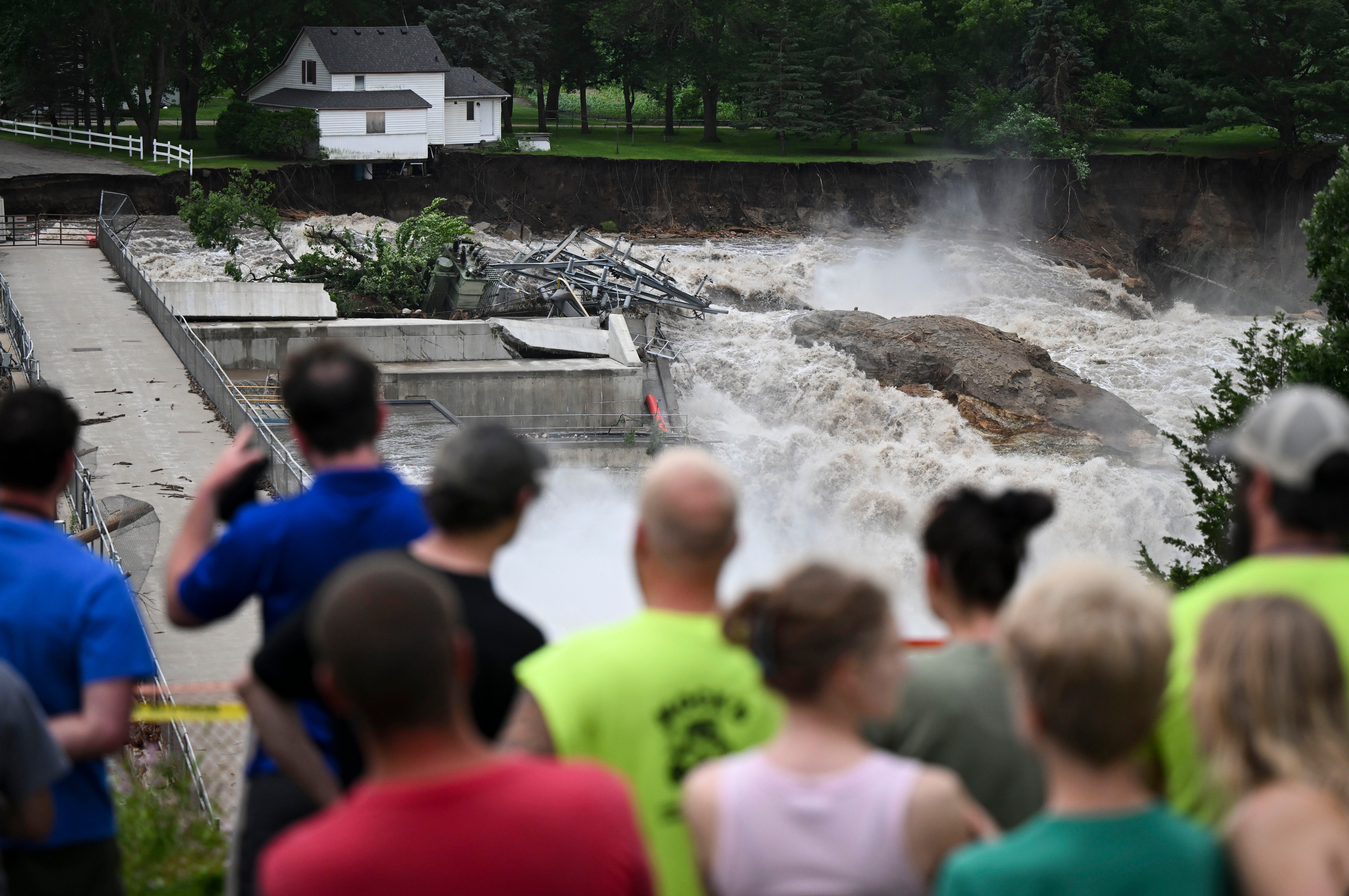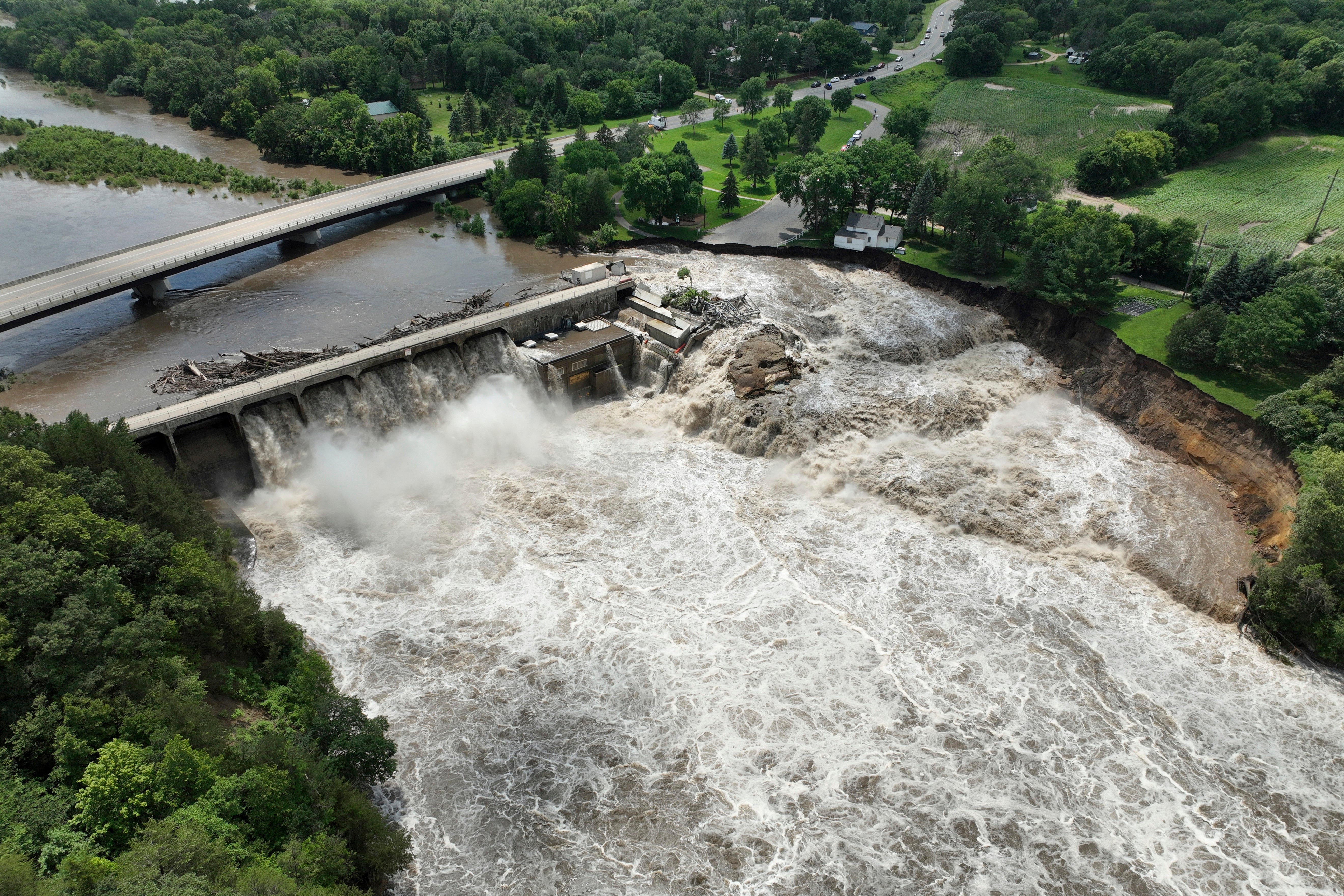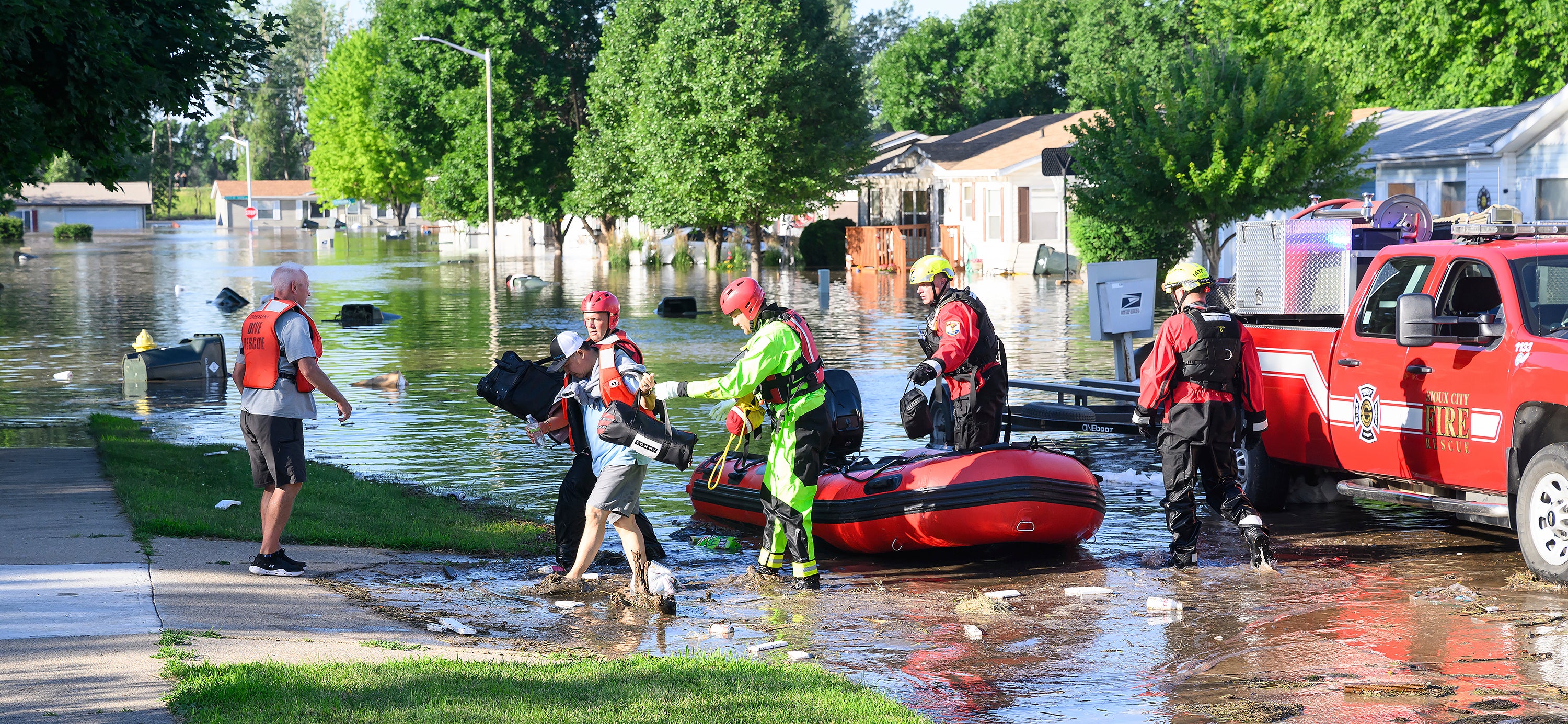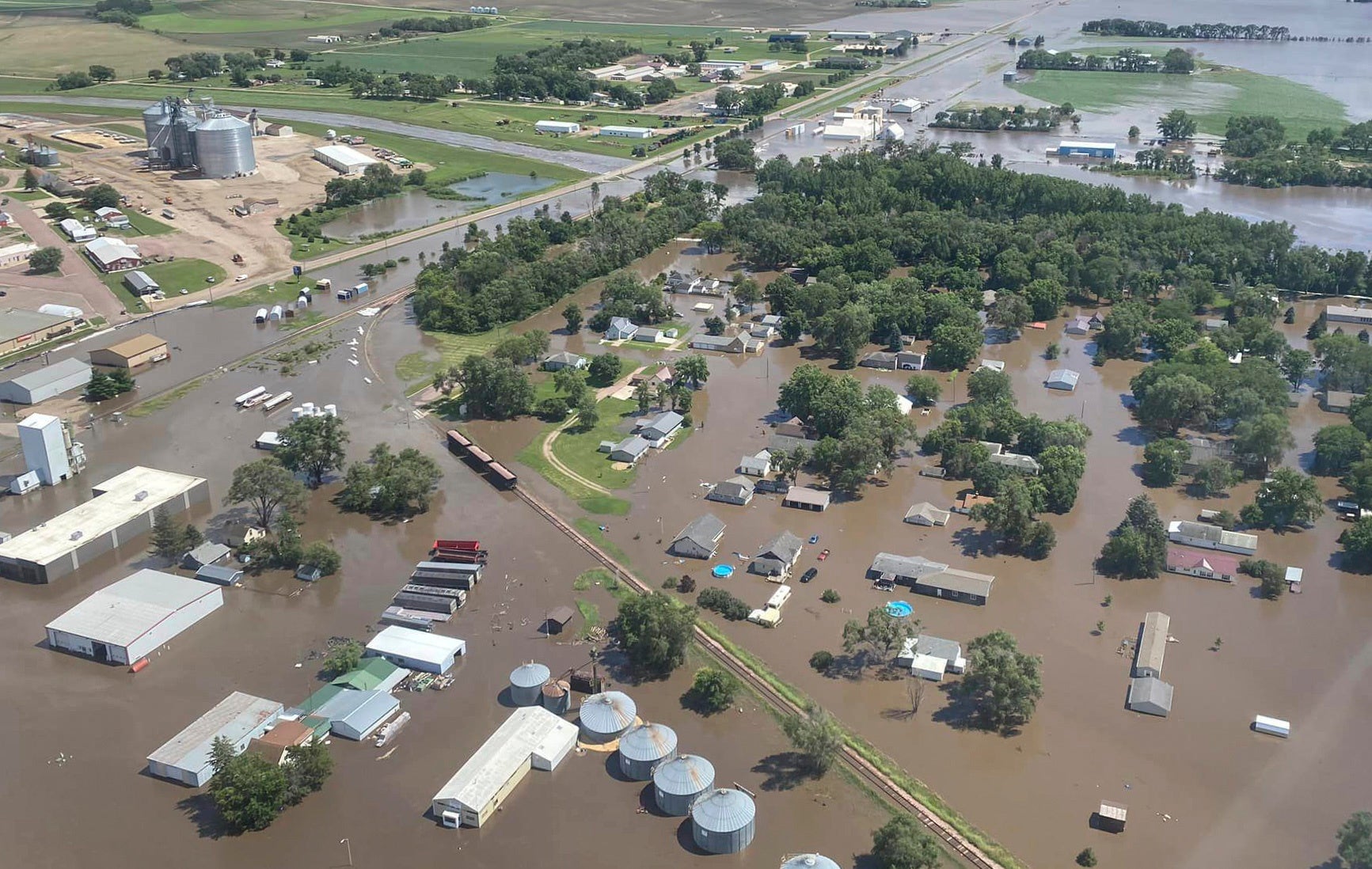Deadly floods still battering Midwest towns as millions remain under heat warnings
Flooding killed at least one person in South Dakota and another in Iowa
Parts of the Midwest were underwater on Tuesday as millions of people across at least two dozen states faced extreme heat warnings.
Heavy rainfall triggered deadly flooding in South Dakota, Iowa and Minnesota over the weekend. While many places have already seen the worst of it, rivers will crest through Thursday, the National Weather Service warned, and flooding will remain a concern for at least another week. Tuesday will also see egg-sized hail batter the region.
William Schulze of Elburn, Illinois, died in Iowa on Saturday after trying to cross the swollen Little Sioux River in a Ford F-150 which was swept away, ABC7 Chicago reports. Another person died in South Dakota when their vehicle rolled down an embankment created by a water-eroded road, according to NBC News.

Minnesota’s flooding has left “entire communities under feet of water,” Governor Tim Walz said this weekend. On Monday, the Rapidan Dam in Blue Earth County, partially failed after severe flooding hit the region, putting thousands of people at risk.
The dam began to break down as rushing waters swept debris into the 114-year-old structure. On Monday morning, the dam was in “imminent failure condition” but by the afternoon, it had suffered a “partial failure,” the sheriff’s office said. The dam is near the city of Mankato, about 90 minutes from Minneapolis, and home to some 45,000 people. Blue Earth County has nearly 70,000 residents in total.

Flooding has also destroyed businesses, healthcare facilities and homes in Iowa, said Governor Kim Reynolds, who declared a state of emergency in 21 counties last week.
“Businesses are shuttered. Main streets have been impacted,” Reynolds said. “Hospitals, nursing homes and other care facilities were evacuated. Cities are without power, and some are without drinkable water.”
In Spencer, Iowa, hundreds were evacuated and crews made 383 rescues, NBC News reports, amid road closures and widespread power outages. Much of the town of 11,000 was still partially submerged as of Tuesday.

Some 4,000 people were also evacuated from Rock Valley, Iowa as flooding tore through the community Sunday, with people and animals rescued from the waters throughout the day by boat.
Drone footage from Woodbury County Sheriff’s Office showed several homes and other buildings submerged with only their roofs visible in the town of Correctionville. Powerlines and roads were also underwater.
In Sioux City, Iowa, a train bridge connecting the town to the neighboring state of South Dakota collapsed into the Big Sioux River late Sunday, local outlet KTIV4 reported.

“That is the main bridge going into Iowa that a lot of commodities and different materials move on throughout the state,” South Dakota Governor Kristi Noem said. “That’ll impact us for many, many months to come.”
Millions of people in 27 states were under heat alerts on Tuesday. Much of the central and eastern US has spent the past week under a heat dome - an oppressive atmospheric event that traps heat and causes extreme heat waves.
The climate crisis is driving more extreme and frequent heatwaves in the US and around the world, and experts say 2024 will likely be the hottest year on record globally following the record-setting 2023.
Join our commenting forum
Join thought-provoking conversations, follow other Independent readers and see their replies
Comments
Bookmark popover
Removed from bookmarks